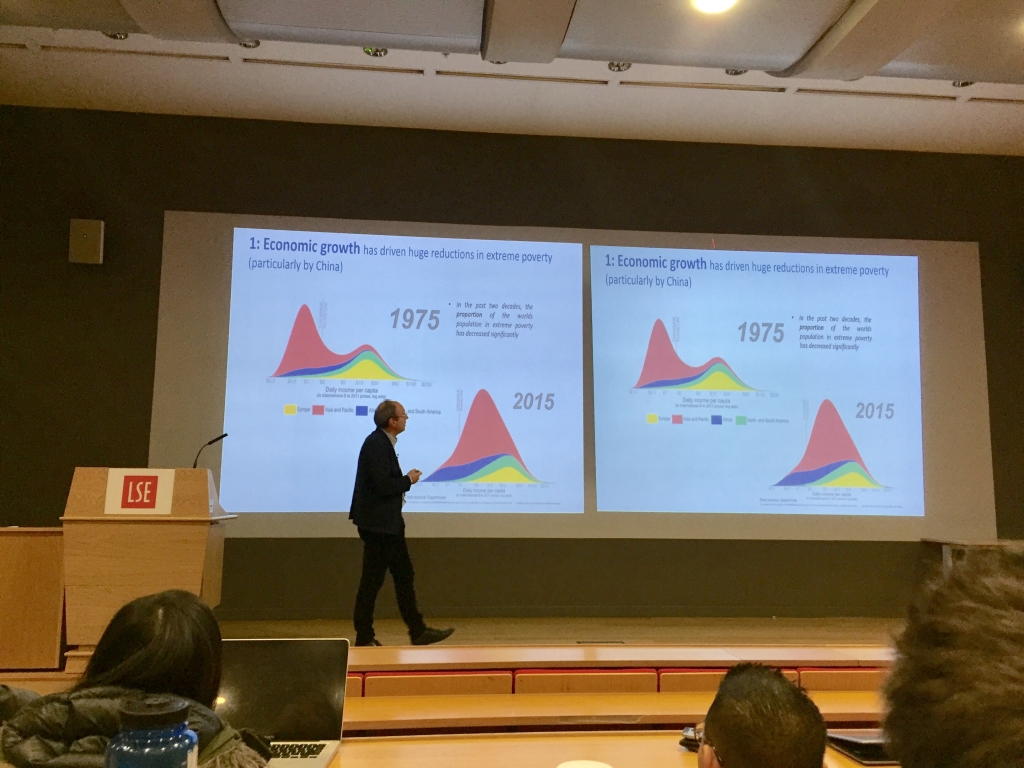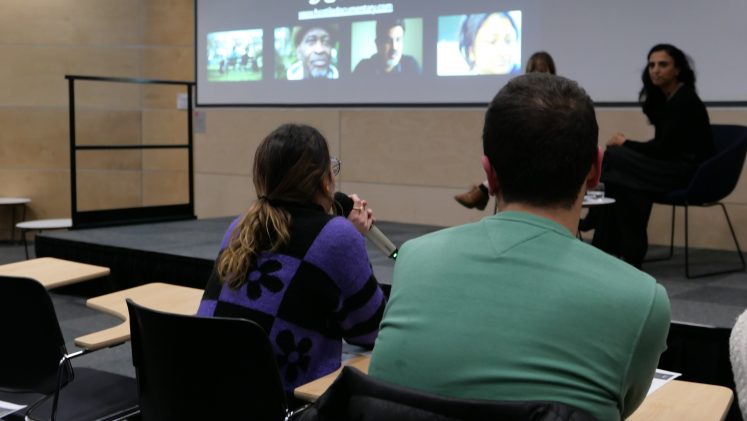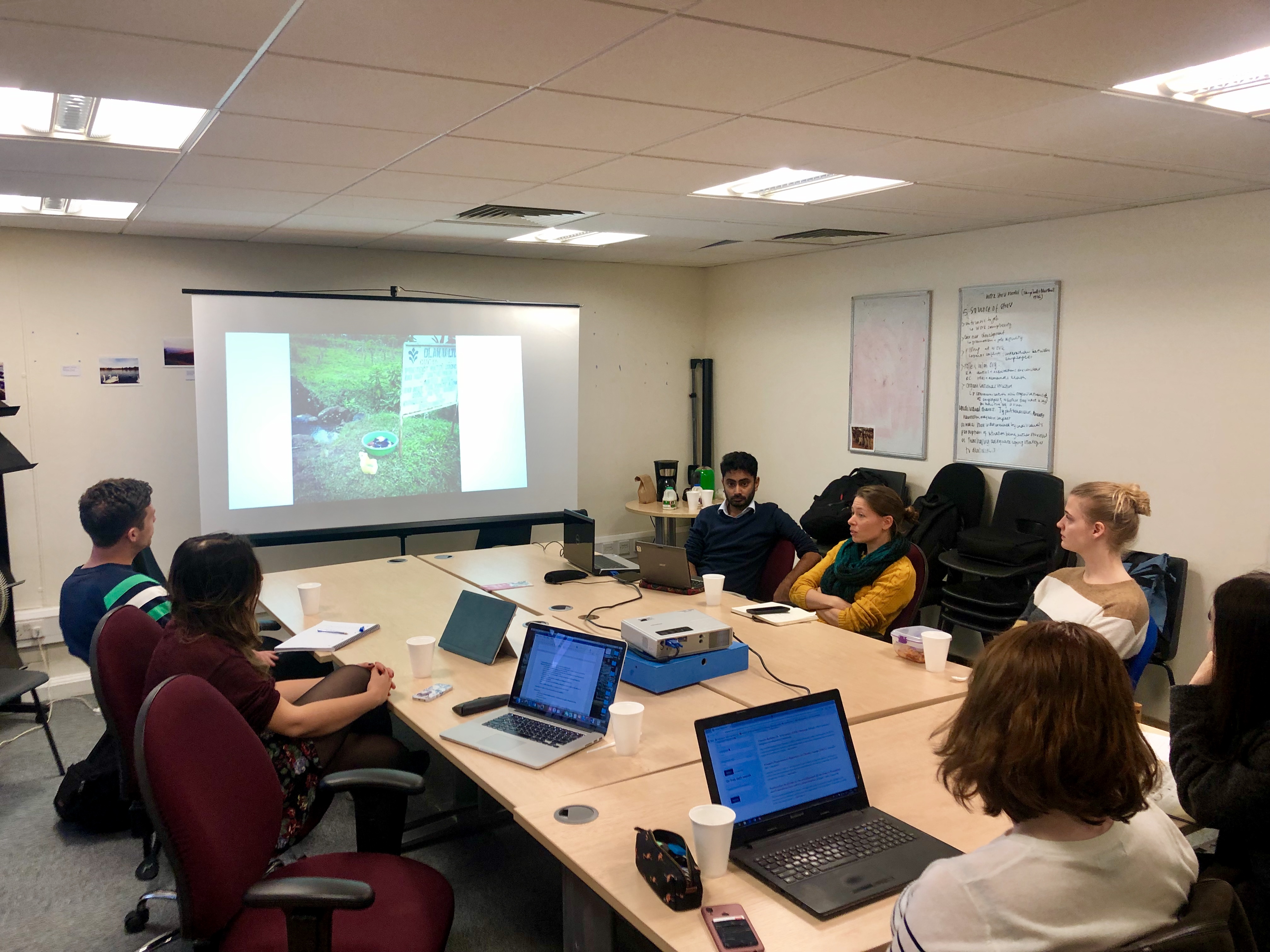MSc human Rights student, Rita Anchutina, reflects on a Cutting Edge in Development talk by visiting lecturer Professor Stefan Dercon, current chief economist of the UK Department for International Development, about the future of aid.

On Friday the 8th of December, LSE was honoured to host Professor Stefan Dercon with his lecture regarding aid. In his talk, Professor Dercon addressed the debates around the history of aid and its prospects, questioning whether providing aid to developing nations could ever be easy, effective, or smooth. He talked about the MDGs and their attractiveness, development and progress, market failures and other challenges that hamper growth. His in-depth analysis of aid, its forms and measurement mechanisms brought the audience to the conclusion regarding the essence of aid. It should neither be a blind tool targeted to cure the ills of weak or failing states nor an investment technique (as argued by Paul Collier). With his ingenious use of animalistic metaphors, Professor Dercon showed how differentiated and tailored aid could and should be.
Throughout the talk, Professor Dercon was referring to the works of other big thinkers, whose discussions about aid have sparked much academic interest. For instance, it is worth turning to Jeffrey Sachs for those puzzled by the costs of achieving MDGs or links between market failures and aid. Amartya Sen introduces the ways to measure development and the ‘good concept of poverty’. Duflo and Banerjee warn about the potential failure of large-scale projects based on their small-scale counterparts. Acemoglu and Robinson discuss the merits of education and investment in human capital, whereas Bill Easterly and Joe Stiglitz examine the role of aid in international political economy. Generally, Professor’s synthesis of the most influential authors and their works consecrated to market failures, development, and, of course, aid supplied the audience with an idea of the ‘messiness’ associated with delivering aid in this world. Such condition fuels the following questions. Does aid perpetuate poverty and create market failures? Does it make sense to provide and promote aid at all if no success or effectiveness is guaranteed? Professor Dercon sought to give an answer based on his own research and observations.
Professor Dercon indicated a number of aspects that stipulate poverty and subsequent call for aid. Primarily, conflict and fragility that saturate many societies worldwide today become the reason extreme poverty persists. Governments that are not apt to foster economic activity and are often directly or indirectly invested in those conflicts, exacerbate crisis conditions and prevent aid effectiveness. The absence of functioning social sector systems, private sector, accountability and genuine commitment to change do not merely restrain development – they do not leave any room for any progress, regardless of the size and content of aid.
What is then the key to success in aid business? It lies in a neat categorization of the types of states we are dealing with. Whether those are the ‘tiger’ states that manage to reduce poverty rates rapidly, neo-patrimonial states (‘hippo’ states in Professor’s terminology) where a very tight and often corrupt link exists between the private and public sector, or predatory states that live off other states, there is a unique approach to be devised for each of those. There is indeed a promising future for states that exhibit drive for change, create economic and political incentives, tackle corruption, seek legitimacy through development, and display elite commitment to deliver growth.
It might seem that most of the arguments made by Professor or the economists discussed during the lecture are rather simplistic, generalized, or trivial. Yet, I would personally doubt that most of those wisdoms are ever being followed. Simplicity is the trademark of a genius. No graph or formula would ever illustrate why changes happen. It is the dialogue between the parties and genuine commitment on both sides that can truly bring about change.
Rita Anchutina is currently a MSc Human Rights student at the LSE. Born and raised in Moscow, Russia, Rita decided to move away from home to complete her undergraduate degree in International Relations at the University of Bristol, UK. The history of human rights violations both at home and worldwide inspired her to continue her academic career in the field. She is a big fan of dystopian novels and contemporary art and photography exhibitions.
The views expressed in this post are those of the author and in no way reflect those of the International Development LSE blog or the London School of Economics and Political Science.





